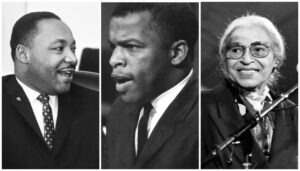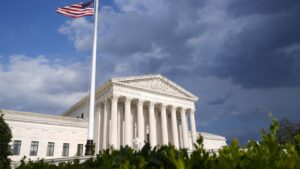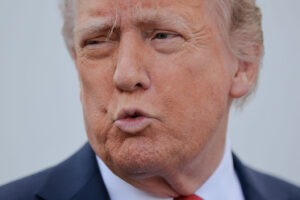In a striking turn of events just three months into Donald Trump’s second term, his administration has begun to implement the controversial plans outlined in Project 2025. This initiative, backed by the conservative Heritage Foundation, has raised significant concerns for its approach to voting rights, as highlighted in advance by the Brennan Center. The plan, which is rooted in claims of a stolen 2020 election, calls for using an old civil rights law to target those involved in voting processes, such as election officials and voter registration groups.
The administration’s actions became apparent when the president signed a memorandum targeting Christopher Krebs, the former head of the Cybersecurity and Infrastructure Security Agency (CISA). Despite being appointed by Trump, Krebs was dismissed after CISA declared the 2020 election to be the most secure in history. The memorandum instructed the revocation of security clearances for Krebs and his employer and demanded a review of his actions, accusing him of denying the alleged election fraud.
These actions follow a pattern of retribution against those involved in the 2020 election. In a speech delivered at the Justice Department, Trump expressed his desire to imprison individuals he deemed responsible for a “rigged and crooked election,” and issued an executive order demanding accountability from lawyers involved in challenging his claims.
Support for these measures is echoed by Trump’s appointees. Kash Patel, the FBI head, has expressed intentions to pursue individuals in the media who he claims facilitated election interference. Similarly, Harmeet Dhillon, leading the Justice Department’s Civil Rights Division, has propagated theories of election rigging and reshaped the division’s mission towards eliminating fraud and errors in elections.
Adding to the unfolding scenario, Ed Martin, the interim U.S. Attorney for the District of Columbia, announced the formation of a special unit to probe alleged election offenses. Although the details remain sparse, Martin’s vocal support for the election denial movement raises concerns over potential investigations targeting election officials and voter groups.
The implications of these developments are significant. Even without formal charges, the mere threat of prosecution can deter organizations and individuals from engaging in voter advocacy and election administration. Many election officials, already facing harassment, may be driven away, further destabilizing electoral processes.
As future elections loom, the stakes are high. The resilience of officials like Georgia’s Brad Raffensperger in 2020, who resisted pressure to alter election outcomes, underscores the critical role these individuals play. However, the threat of prosecution could influence decisions in key areas during subsequent elections.
While attention is focused on past elections, the administration’s actions signal potential repercussions for resisting election subversion. Conversely, those who support such subversion may find favor. Trump’s actions on his first day back in office, including pardons for those involved in the January 6th insurrection, reinforce this message.
The persistence of the administration’s focus on electoral matters is unsurprising, given the elections’ fundamental role in democracy. Protecting these processes from political pressure is imperative. Some Justice Department officials have resisted political influence, and continued vigilance is necessary to preserve the integrity of future elections. The courts must act decisively against any legally unfounded prosecutions that arise.
Ultimately, safeguarding elections will require concerted efforts from states, civil society, and individuals. As democracy and the rule of law are interdependent, the responsibility to uphold them falls to all.






